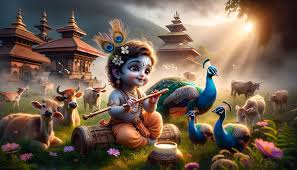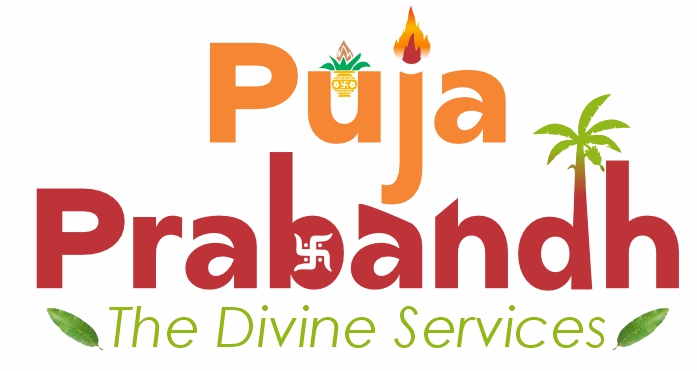
Krishna Janmashtami Puja is a joyful and deeply spiritual celebration marking the birth of Lord Krishna, the eighth avatar of Lord Vishnu. It is observed on the eighth day (Ashtami) of the Krishna Paksha in the month of Bhadrapada (August–September), usually falling at midnight, the believed time of Krishna’s birth.
The puja is celebrated with great devotion in homes and temples across India, especially in states like Uttar Pradesh, Maharashtra, Gujarat, and Karnataka. Devotees prepare for the festival by cleaning their homes, decorating altars with flowers, garlands, lamps, and small cradles to welcome the divine child.
The main rituals begin in the evening. A picture or idol of baby Krishna (Bala Gopala) is bathed in panchamrit (a mixture of milk, curd, honey, ghee, and sugar), dressed in fine clothes and jewelry, and placed in a decorated cradle. The puja includes Aarti, bhajans, and chanting of Krishna’s names like “Om Namo Bhagavate Vasudevaya.”
Devotees observe fasts, breaking them only after midnight, when Krishna is believed to have been born. The Krishna Janma Katha (the story of Krishna’s birth) is recited or dramatized, and temples often hold midnight celebrations, including devotional singing and Dahi Handi events.
Offerings to Lord Krishna include butter, milk-based sweets, fruits, and flavored poha (flattened rice), which he loved. After the puja, prasadam is distributed among family and guests.
The celebration symbolizes divine love, truth, and victory of good over evil. Lord Krishna’s life teaches dharma, devotion, and the path of righteousness.
Krishna Janmashtami Puja brings families together in devotion and joy, invoking the playful yet powerful presence of Krishna into their lives.

